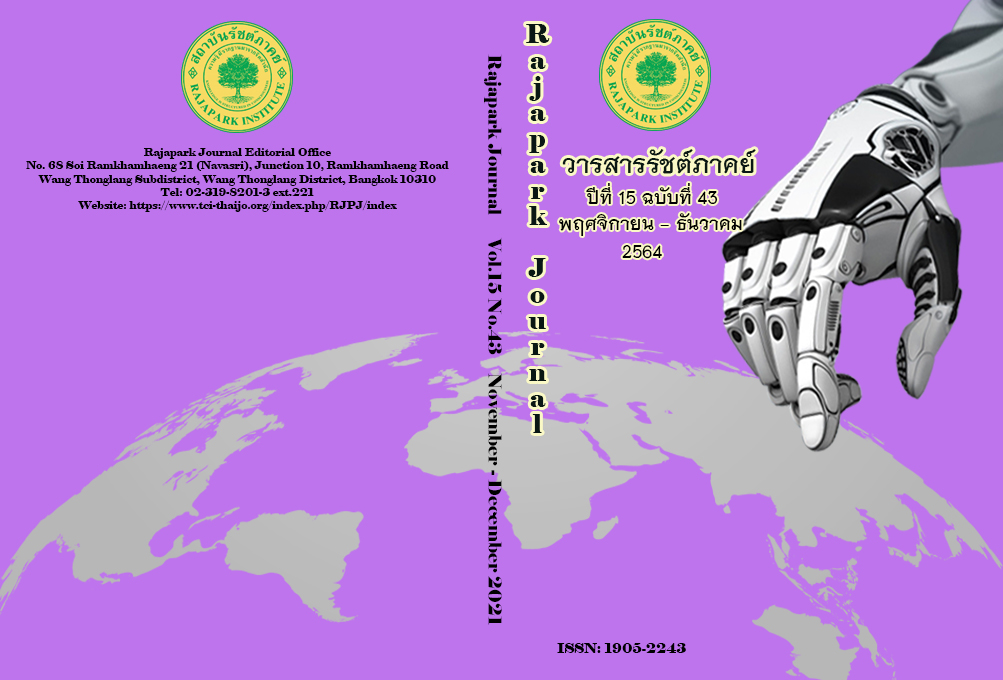Learning and Knowledge Management of the National Mother Village Fund Communities in Bangkok Metropolis
Main Article Content
Abstract
The objectives of this research were to study the learning process and knowledge management of the National Mother Village Fund Communities in Bangkok in terms of their learning potential and being a model for drug addiction prevention and resolution; and to study the guidelines for community development that have the potential to become a learning center for the National Mother Village Fund. Qualitative research was conducted in 6 community models in Bangkok from June to October 2018. 215 informants who are the committee members, people in communities, and network partners were participated through depth interviews and focus groups. The results were found that the learning process and knowledge management of the communities are created through: 1. Integrated (body of) knowledge on drug addiction prevention and resolution together with other (bodies of) knowledge for the life development and well-being of people in the communities; 2. Community leaders and committee members had knowledge acquisition, knowledge sharing, and self-development; 3. Observational learning and self-defensive processes for drug addicts were used for youth in the communities; 4. Supportive social networks were established to support the communities; and 5. Social capital and identity of the communities were applied to the learning process and knowledge management of the communities. Research results on the development approach to become a learning center were; being a learning center that can demonstrate real working conditions in the community; and being a learning center that provides a variety of knowledge based on the identity of each learning center.
Article Details
Views and opinions appearing in the Journal it is the responsibility of the author of the article, and does not constitute the view and responsibility of the editorial team.
References
Bandura, A. (1986). Social Foundations of Thought and Action: A Social Cognitive Theory. New Jersey: Prentice-Hall.
Chailert, B., Tongma, W., Raksathip, R., & Temdee, P. (2013). Development of a Knowledge Management System in Community Tourism in Pong Yaeng Subdistrict, Mae Rim District, Chiang Mai Province. Chiang Mai: Faculty of Tourism Development, Maejo University.
Chaopraeknoi, U. (2019). Development of Networking Capability for Drugs Prevention of “Mother of the Nation Fund for Drugs Control” in Krathumbaen, Samutsakhon. Saint John’s Journal, 22(30), 86-102.
Community Development Department. (2012). Guidelines for the Operation of the National Mother Village Fund Communities. Bangkok: Community Development Department, Ministry of Interior.
Community Development Department. (2016). Community Knowledge Management Manual. Community Strengthening Office. Bangkok: Community Development Department, Ministry of Interior.
Gulasirima, R., Prapaspong, T., & Suwanampa, N. (2016). Practical Guidelines to Knowledge Management Using the Network of Community’s Learning Sources in Khokkotao Subdistrict, Muang District, Suphanburi Province. SDU Research Journal, 12(1), 155-170.
Injun, S. (2017). The Management of Drug’s Preventive and Corrective Measures with the Land’s Mother Fund: The Case of Model Village in Samut Sakhon Province. Journal of MCU Social Science Review, 6(2), 241-254.
Khammanee, T. (2002). Pedagogical Science: Knowledge for Effective Teaching and Learning Management. Bangkok: Chulalongkorn University.
Mahidol University (2018). Knowledge Management. Retrieved October 27, 2017, from
https://do.eg.mahidol.ac.th/km61/index.php/kmwhat
Nakornthap, S. (1996). Education and Research for Thailand Development: Education for Sustainable Development. Bangkok: Thailand Research Fund.
National Drug Prevention and Suppression Center. (2016). Prevention and Troubleshooting Action Plan Addictive year 2016. Bangkok: National Drug Prevention and Suppression Center.
Pakvipas, P., & Pongwiritthon, R. (2015). Guideline of Developing Community Capacity for Healthy City: A Case Study of Doi Phu Meun. Journal of Community Development Research (Humanities and Social Sciences), 8(1), 108-121.
Potiwan, P. (2014). Community Potential in Drug Prevention management. Rethink Social Development for Sustainability in ASEAN Community (Pp. 300-305). Khon Kaen University: Research and Technology Transfer Division.
Siriboon, S. (2019). Lessons Learned in Solving Drug Problems, a Case Study of the Mother Land Fund, Nakhon Luang District, Phra Nakhon Si Ayutthaya Province(Master of Political Science, Program Interdisciplinary Branch for Local Development). Ramkhamhaeng University.
Thongrassamee Aarnes, R., Prapaspong, T., & Suwanampa, N. (2018). A Study of Participatory Learning Organization Conditions for Community Enterprise Development in Bangpli District, Samutprakan Province. Journal of Community Development Research (Humanities and Social Sciences), 11(3), 65-80.
Tonsri, W., Sutthisa, C., & Ratanasuteerakul, K. (2014). Social Capital and Cultural Capital of the Khmer ethnic and the Prevention and Solutions Drug Problems in the Community. Research and Development Journal Buriram Rajabhat University, 9(1), 93-103.
Varavitpinit, S., Boonkoum, W., & Sungrugsa, N. (2017). The Model Development of Phetchburi City Follows Philosophy Trend of the Sufficient Economy. Veridian E-Journal, Silpakorn University, 10(2), 1657-1674.
Walaisatien, P. (2006). Community Learning Process and Knowledge Management. Bangkok: Thammasat University.


